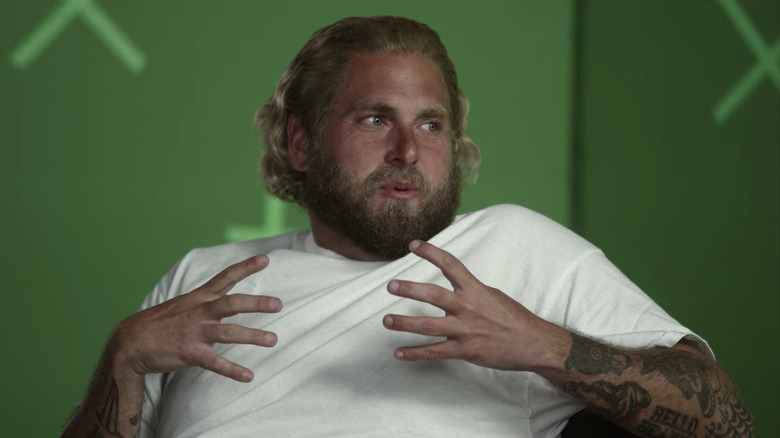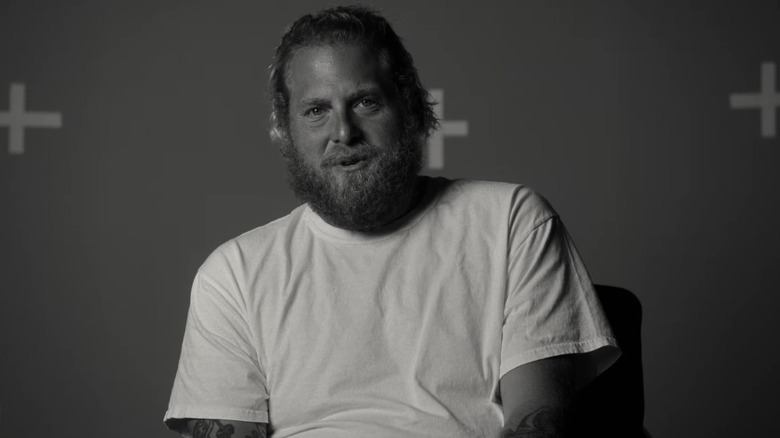Stutz: Why Jonah Hill Made A Documentary About Phil Stutz
In 2022, Netflix released the Jonah Hill-directed documentary "Stuz" — a film that chronicles the life, career, and teachings of acclaimed psychiatrist Dr. Phil Stutz. Much of the film revolves around the relationship between Hill himself and Stutz, as well as their novel approach to therapy sessions, Stuz's unique tips for tackling mental health, and the pair's deep affection for one another.
Although the film has certainly impressed audiences (earning a spectacular 100% on Rotten Tomatoes), one certainly has to wonder what prompted a traditionally comedic actor like Jonah Hill to dive into such a vulnerable, serious topic. Hill explains the process within the film itself, saying, "I made this movie because I love Phil because I love the life these tools allowed for me to have. And it doesn't matter what people think about the movie. It just matters that we finished it together." Within the first few moments of "Stuz," Hill also describes his desire to provide all of Stutz's tools to the audience in order to help them the same way that he has been helped.
Hill succeeded in what he set out to create with Stutz
As the film goes on, the so-called "message" or "purpose" of the movie is called into question several times by Jonah Hill himself. At one point, Hill actually speaks out about the film's false portrayal of "vulnerability" on his part — pulling back the curtain to reveal that he's been struggling immensely with what he wants this movie to be and that they've shot hours of footage across many different months in a vain attempt to craft some sort of story.
The ultimate goal though, as prefaced in the opening minutes of the film, was to create a comprehensive documentary about Phil Stutz and present his teachings to the world at large — which the film succeeds in tremendously. "Stutz" depicts a detailed account of Stutz's life right up to the modern day, from his growing up in Manhattan to his early psychiatric work on Rikers Island to his development of "The Tools" and his tragic diagnosis of Parkinson's Disease. On top of this portrait of his life, the film also dives into all of "The Tools" that Stutz has developed over the years to help his patients tackle their mental health issues — including specific exercises like "The Shadow," "Life Force," "The Snapshot," "The Grateful Flow," and "The Reversal of Desire."
Although Jonah Hill may have had some early concerns about the true purpose of "Stutz," in the end he accomplished both of the goals that prompted him to create this film — presenting the best of Phil Stutz's tools to a wider audience, and creating a detailed biopic that encompasses Stutz's life, and the unique patient-doctor relationship Hill and Stutz share.

